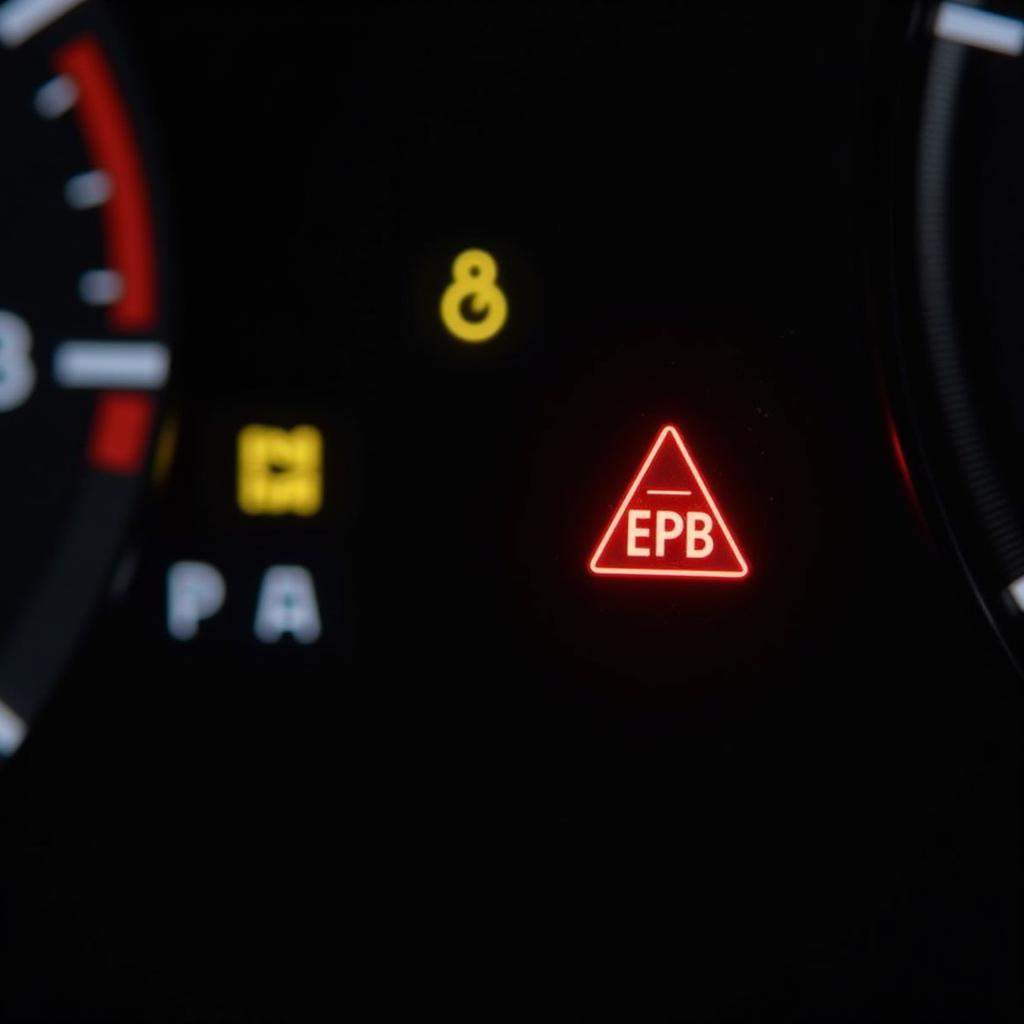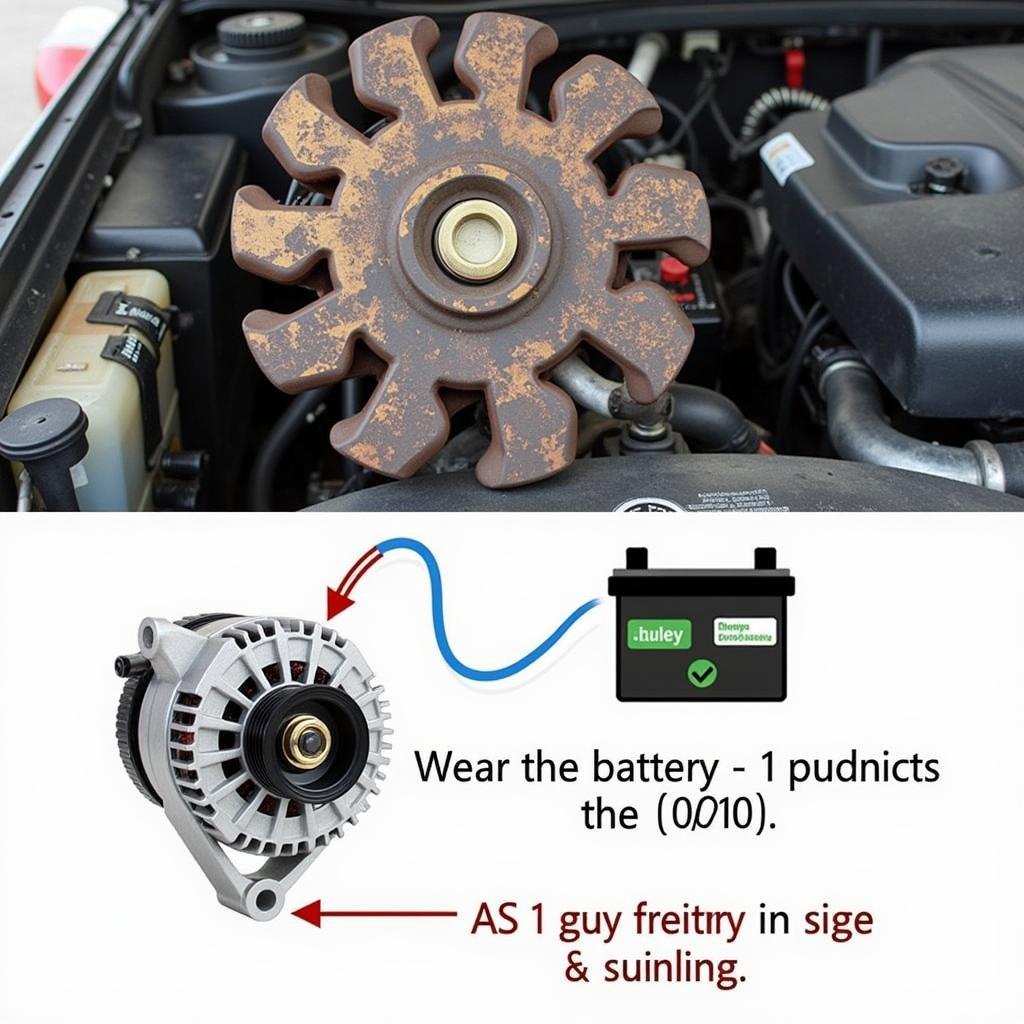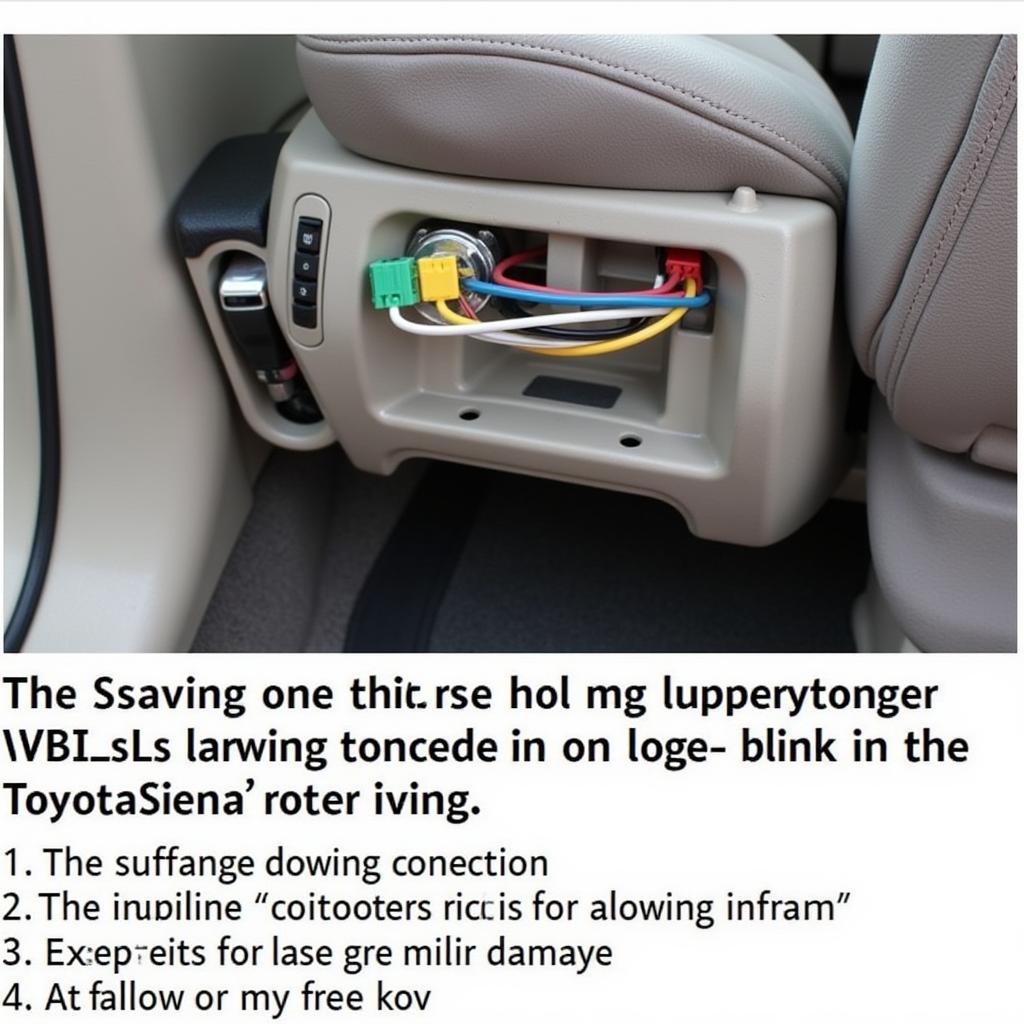The electronic parking brake (EPB) on your VW Tiguan is a safety-critical system that helps to prevent the vehicle from rolling away when parked. When the EPB warning light illuminates on your dashboard, it indicates a potential issue with the system that requires your attention.
This comprehensive guide delves into the common causes behind the VW Tiguan electronic parking brake warning light and provides potential solutions to get you back on the road safely.
Understanding the Electronic Parking Brake System
Unlike traditional handbrake systems, the EPB in your VW Tiguan uses an electronic button to engage and disengage the parking brake. When you activate the EPB, an electric motor applies force to the rear brake calipers, effectively locking the wheels in place. The system relies on various components, including:
- EPB Switch: This button, typically located on the center console, sends a signal to the EPB control module.
- EPB Control Module: The brain of the system, this module receives signals from the switch and various sensors to control the parking brake motor.
- Parking Brake Motor: This electric motor receives instructions from the control module and applies force to engage or disengage the parking brake.
- Wheel Speed Sensors: These sensors monitor the rotational speed of each wheel and provide data to the EPB control module.
- Brake Caliper: The caliper houses the brake pads and piston, which apply pressure to the brake rotor when the parking brake is engaged.
Common Causes of the EPB Warning Light
The EPB warning light on your VW Tiguan’s dashboard can illuminate for several reasons, ranging from minor issues to more serious problems. Here are some of the most common culprits:
- Low Brake Fluid: Just like your regular braking system, the EPB relies on hydraulic pressure from brake fluid. Low brake fluid levels can trigger the warning light.
- Worn Brake Pads: Excessively worn brake pads can affect the EPB’s ability to engage correctly, illuminating the warning light.
- Faulty EPB Switch: A malfunctioning EPB switch may send incorrect signals to the control module, leading to a warning light and potential EPB malfunction.
- EPB Motor Failure: A failing or seized EPB motor can prevent the parking brake from engaging or disengaging properly, prompting the warning light.
- Sensor Issues: Problems with the wheel speed sensors or other sensors within the EPB system can disrupt its operation and trigger the warning light.
- Software Glitch: Like any electronically controlled system, the EPB can experience software glitches that disrupt its functionality.
 VW Tiguan dashboard with illuminated EPB warning light
VW Tiguan dashboard with illuminated EPB warning light
Troubleshooting the VW Tiguan Electronic Parking Brake Warning Light
While it’s always recommended to consult a qualified mechanic for any warning light on your dashboard, you can take some preliminary steps to troubleshoot the issue. Remember, safety is paramount, and attempting any repairs beyond your skill level can be dangerous.
- Check Brake Fluid Level: The first and easiest step is to check your Tiguan’s brake fluid level. Refer to your owner’s manual for the location of the brake fluid reservoir and the recommended fluid type. If the fluid level is low, top it up to the appropriate mark.
- Inspect Brake Pads: Visually inspect your Tiguan’s rear brake pads for wear. If they appear excessively thin or worn beyond the recommended limit, replacement is necessary.
- Listen for Unusual Noises: When engaging or disengaging the EPB, listen for any unusual noises, such as grinding, clicking, or buzzing. These sounds can indicate a problem with the EPB motor or other mechanical components.
- Try a Simple Reset: In some cases, a simple reset might resolve the issue. Turn off your Tiguan’s ignition, wait a few minutes, and then restart the vehicle. Check if the warning light persists.
When to Seek Professional Help
If the EPB warning light remains illuminated after attempting these troubleshooting steps, it’s crucial to seek professional assistance. Continuing to drive with a potential EPB issue can increase the risk of accidents or further damage to the system.
A qualified technician, preferably one specializing in VW vehicles, can accurately diagnose the problem using specialized diagnostic tools.
Benefits of Remote Diagnostics and Software Solutions
In today’s technologically advanced automotive landscape, remote diagnostics and software solutions offer a convenient and efficient approach to addressing EPB issues.
Remote diagnostics, as offered by specialized service providers, allow technicians to access your VW Tiguan’s onboard computer system remotely. This technology enables them to:
- Retrieve diagnostic trouble codes (DTCs) stored in the EPB control module.
- Analyze real-time data from various sensors within the EPB system.
- Identify the root cause of the warning light and recommend appropriate solutions.
Software solutions provide an effective way to address software-related issues within the EPB system. Reputable service providers can remotely:
- Install software updates to the EPB control module, addressing potential bugs or compatibility issues.
- Perform software calibrations to ensure optimal EPB performance and prevent future problems.
“Remote diagnostics and software solutions are revolutionizing the way we diagnose and repair modern vehicles,” says Mark Thompson, a certified automotive technician with over 20 years of experience. “These technologies not only save time and effort but also provide highly accurate diagnoses, leading to more efficient and cost-effective repairs.”
tiguan electric parking brake warning light
Conclusion
The electronic parking brake in your VW Tiguan is a crucial safety feature that demands immediate attention if the warning light illuminates. Understanding the potential causes behind the vw tiguan parking brake warning light and taking appropriate action, whether troubleshooting yourself or seeking professional help, is essential for ensuring the safety of you and your passengers. Remember, a properly functioning EPB is vital for preventing unintended vehicle movement and maintaining optimal safety on the road.


